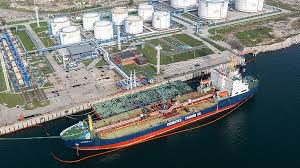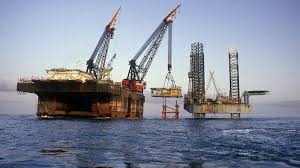OFAC Due Diligence and Attestation Requirements (Part IV of IV)

OFAC’s guidance is intended to ease the burden on an otherwise difficult compliance problem. Companies have to act in good faith to avoid transacting business involving Russian crude oil that has been sold above the $60 per barrel price cap. For some industry players, compliance is straightforward. However, for a number of players who do not normally have access to specific pricing information, due diligence and compliance can be more complex and multi-faceted.
OFAC expects that U.S. service providers will continue to perform standard due diligence practices for their industry and for their role in a particular transaction. OFAC provided the following expectations for each tier level:
Tier 1: Traders and commodities brokers. Traders and commodities brokers must maintain and retain information showing that Russian oil for maritime transport was purchased at or below the relevant price cap. This could take the form of invoices, contracts, receipts/proof of payment, or other documentation that shows price information.
Tier 2: (a) Financial Institutions and Others: U.S. financial institutions providing financing related to the maritime transport of Russian oil must request and retain price information (to the extent practicable) or a signed attestation from their customers (when direct receipt of price information is not practicable). More specifically:

(1) Transaction-Specific Financing: Financial institutions providing transaction-specific trade finance related to the maritime transport of Russian oil should implement appropriate and reasonable risk-based policies and procedures within sanctions compliance programs to confirm that that the price does not exceed the relevant price cap. If obtaining transaction documentation is not practicable in the ordinary course of business, financial institutions must obtain and retain signed attestations from their downstream customers or subcontractors that the Russian oil was purchased at or below the relevant price cap.
(2) General Financing: Financial institutions providing customers with non-transaction specific financing related to the maritime transport of Russian oil should also implement appropriate and reasonable, risk-based policies and procedures within sanctions compliance programs to confirm that that the price does not exceed the relevant price cap. Financial institutions must obtain and retain signed attestations from their downstream customers or subcontractors that for the service being provided, the Russian oil was or will be purchased at or below the relevant price cap to be afforded the safe harbor.
(b) Ship/vessel agents: Ship/vessel agents must request and retain price information (to the extent practicable) or a signed attestation from their customers (when direct receipt of price information is not practicable). If, in the ordinary course of business, a ship/vessel agent has access to or can request price information, then the ship/vessel agent must request and retain that information to be afforded the safe harbor.
For example, a ship/vessel agent representing the interests of a shipowner (who is a Tier 3 actor) may not in the ordinary course of business have access to or be able to request price information, and thus must obtain and retain an attestation to be afforded the safe harbor.
(c) Customs brokers: Customs brokers must request and retain price information (to the extent practicable) or an attestation from their customers (when direct receipt of price information is not practicable). If, in the ordinary course of business, a customs broker has access to or can request price information, then the customs broker must request and retain that information to be afforded the safe harbor.
Tier 3: (a) Shipowners/carriers: Shipowners or other carriers who perform the transportation of cargo (who do not in the ordinary course of business have information regarding the pricing of the underlying cargo) must obtain and retain an attestation from their customer/contractual counterparty regarding compliance with the price cap to be afforded the safe harbor.

(b) Insurers/reinsurers/P&I clubs: Insurers, reinsurers, and P&I clubs can be afforded the safe harbor through the use of sanctions exclusion clauses in policies or contracts, including pre- existing sanctions exclusion clauses. Alternatively, or in addition to sanctions exclusion clauses, these actors can be afforded the safe harbor through the use of clauses that exclude coverage for activities related to the maritime transport of Russian oil purchased above the price cap. These actors can also use signed attestations, should they so choose. A standard sanctions exclusion clause is sufficient to be afforded the safe harbor.
An insurer, reinsurer, or P&I club may in the ordinary course of business, such as a claims investigation, request additional information from customers, including additional attestations or price information. A party’s refusal to provide such information should be considered a red flag for potential sanctions evasion.
(c) Flagging Registries: Flagging registries can be afforded the safe harbor through the use of contractual terms with or signed attestations from their customers. For example, flagging registries can require by contract, regulation, or other enforceable means that their customers will be de-flagged if they violate the determination.
Attestation Form
Service providers are not required to use a particular form of attestation to be afforded the safe harbor. As an example, an attestation could include some variation on the following language, signed by an authorized representative of the customer/counterparty:
[Party to the contract/service] confirms that for [the service being provided], [party to the contract/service] is in compliance with the Russian price cap framework and any other restrictions on oil of Russian Federation origin applicable to [party to the contract/service].
[Party to the contract/service] attests that:
[Party to the contract/service] has received and retained price information demonstrating that the oil of Russian Federation origin is/was purchased at or below the cap; or
Where not practicable to request and receive such information, [party to the contract/service] has obtained a signed attestation that the oil of Russian Federation origin is/was purchased at or below the cap; or
[Party to the contract/service] has received a signed attestation that the purchase of oil is/was done pursuant to a license or a derogation.
[Signature of the Customer]

Licensing Policies and Actions
In tandem with the implementation of the price cap, OFAC has also issued a series of General Licenses. These licenses consist of the following:
Sakhalin 2: GL 55 authorizes, through 12:01 a.m. eastern daylight time September 30, 2023, all transactions prohibited by the determination related to the maritime transport of crude oil originating from the Sakhalin-2 project (“Sakhalin-2 byproduct”), provided that the Sakalin-2 byproduct is solely for importation into Japan.
EU derogations: GL 56 authorizes certain transactions related to the importation of Russian oil into the Republic of Bulgaria, the Republic of Croatia, or landlocked European Union member states as described in Council Regulation (EU) 2022/879 of June 3, 2022. U.S. persons engaging in transactions described in these derogations in Council Regulation (EU) 2022/879 do not need to seek a separate OFAC license, as GL 56 authorizes such activity.
Emergency services for vessels: GL 57 authorizes all transactions prohibited by the determination that are ordinarily incident and necessary to address vessel emergencies related to the health or safety of the crew or environmental protection, including safe docking or anchoring, emergency repairs, or salvage operations. This GL only authorizes the offloading of Russian oil if that offloading is ordinarily incident and necessary to address vessel emergencies as described in GL 57. It does not authorize any transactions related to the sale of Russian oil in violation of the determination.
Specific licensing: In the event that a U.S. person learns they are providing a service involving Russian oil that was purchased above the relevant price cap, the U.S. person must immediately cease providing the covered service and contact OFAC. In certain cases, U.S. persons who comply with the attestation process may subsequently discover that someone has caused them to inadvertently provide covered services for Russian oil purchased above the relevant price cap. U.S. persons that seek to continue to provide covered services prohibited by the determination should contact OFAC and request a specific license to continue providing covered services.















